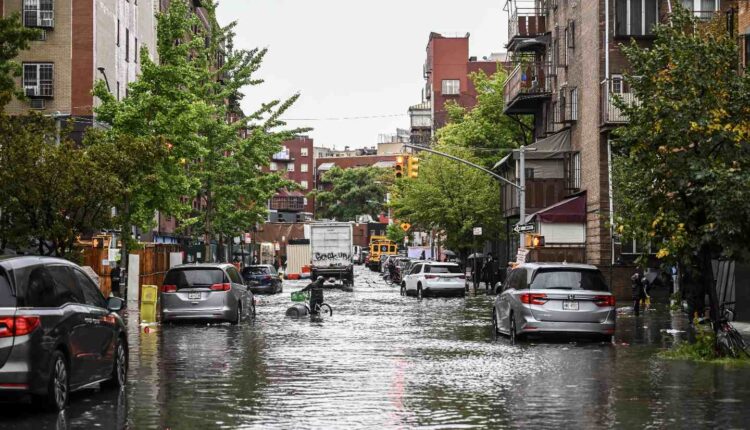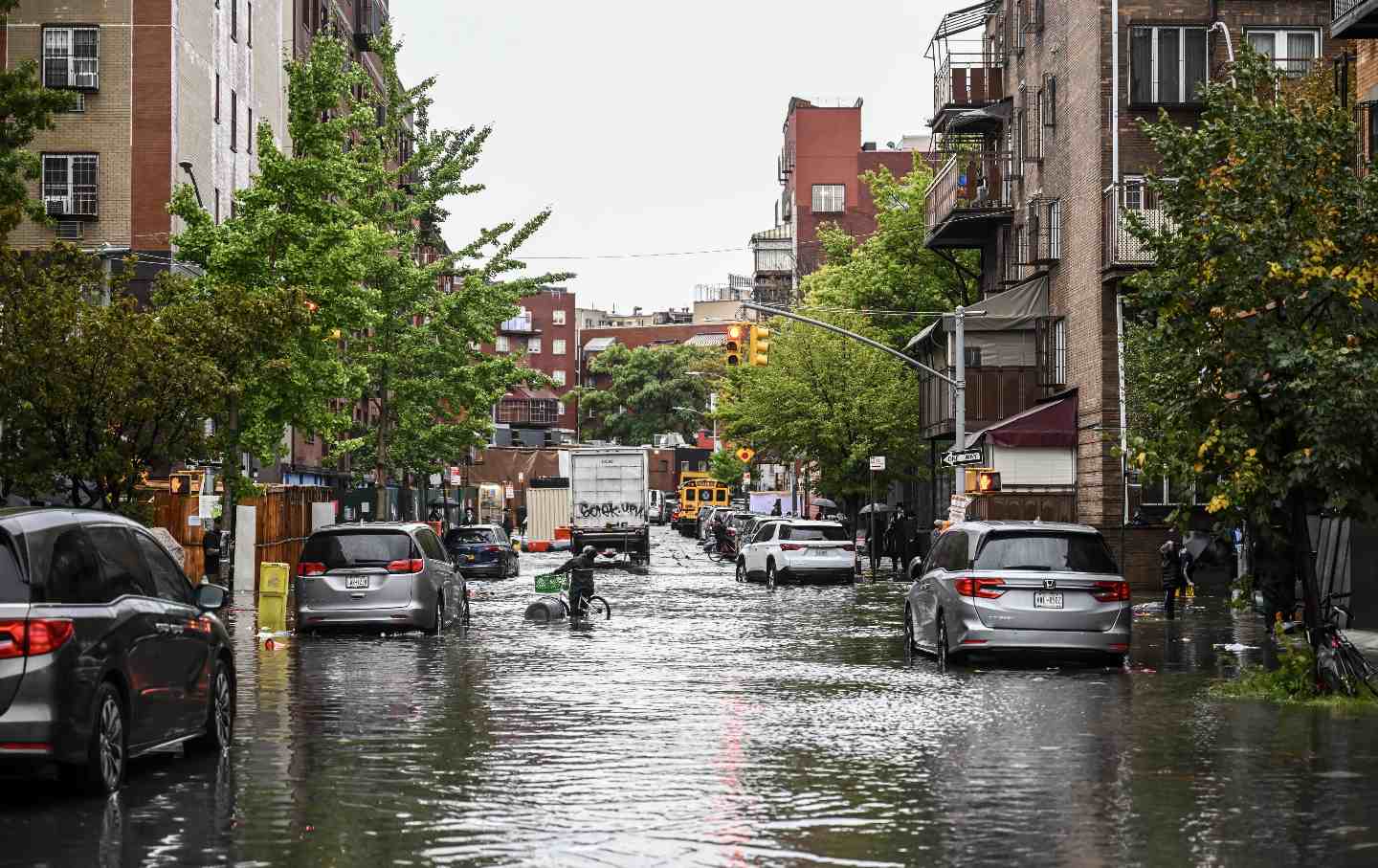
NYC’s Climate Change Volatility
TL/DR –
New York City experienced the wettest day on record since 1948, months after the sky was covered by smoke from Canadian wildfires, highlighting the urgent need for the US to take meaningful climate action. The increasing occurrence of these severe weather events is a stark indication of the “new normal” that the climate crisis is creating. The article urges the US government to invest in climate disaster management, increase community climate resilience, make polluting companies accountable, and provide global climate justice, ahead of the 28th UN Climate Change Conference of the Parties (COP28).
Record Rainfall in NYC Underscores Urgent Need for Climate Action
Following the wettest day New York City has experienced since 1948, climate change’s severity is inescapable. This event, mere months after Canadian wildfires cast a smoky haze over the city, underscores the need for immediate, meaningful climate action in the US.

The recent rainfall in the New York/New Jersey/Connecticut area caused a state of emergency, flooding homes, subways and schools. This starkly reminds us that we are living in a “new normal” created by the climate crisis.
As global warming is expected to surpass the 1.5-degree limit within a decade, it’s clear that the US must enact significant climate policies. This would assist in adapting to the new climate reality and mitigate the worst effects of fossil fuel reliance.
However, the path to meaningful climate action isn’t smooth. The Republican Party has been a roadblock, with their recent standoff nearly causing a government shutdown, which would have severely impacted climate initiatives. Despite narrowly avoiding that catastrophe, the US needs larger commitments to climate action from elected officials.
In fact, more Americans are demanding bolder political leadership on climate issues. A recent demonstration saw 75,000 people flooding NYC streets, calling for an end to the fossil fuel industry. A poll by the Pew Research Center further confirms a majority of Americans support increased federal investment in renewable energy.
Unfortunately, barriers to aggressive US climate action persist. The Inflation Reduction Act’s passage, although a win, is not a total solution or a political breakthrough. The Guardian revealed that the biggest oil companies plan to spend $103 million daily exploring new oil and gas fields, which contradicts the goal of limiting global warming to under 2C.
These obstacles don’t absolve the US government from acting. The government needs to invest in climate disaster management, make polluters pay, acknowledge climate change as a civil, constitutional, and human rights issue, and support global climate justice. At the international climate change conference COP 28, the US has another chance to demonstrate its commitment to global climate leadership.
In the run-up to the 2024 election, Americans will closely watch how the White House and Congress tackle climate change, not just through visible efforts, but also in securing a stable climate and livable planet for future generations.
Read More US Economic News
